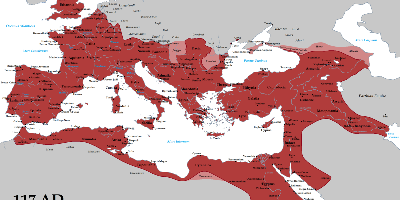Dictatorship of Titus Laritus (1 janv. 501 av. J.-C. – 31 déc. 501 av. J.-C.)
Description:
Lartius' first consulship was in 501 BC, the ninth year of the Republic. His colleague was Postumus Cominius Auruncus. During their year of office, there was a disturbance at Rome, which was attributed to the actions of a group of young Sabines. Only the previous year, the consul Spurius Cassius Viscellinus had defeated the Sabines near Cures, and for a while it appeared that the war might be rekindled. Tensions were also high because it was anticipated that war with the Latins was imminent. Octavius Mamilius, the prince of Tusculum, and son-in-law of Lucius Tarquinius Superbus, the seventh and last King of Rome, was forming an alliance amongst the thirty towns of Latium, with the aim of restoring Tarquin to the throne.In these circumstances it was decided to appoint a single magistrate, originally called the praetor maximus or magister populi, "master of the infantry", but afterwards known simply as the dictator, to oversee the defence of the city. The dictator held supreme authority in the exercise of his duties, and the people had no right to appeal from his decisions, as they could under the consuls. However, the command of the dictator was limited to a period of six months. The Senate directed the consuls to nominate a dictator, and Cominius chose his colleague, Lartius. The dictator then proceeded to nominate Spurius Cassius, who had triumphed over the Sabines the previous year, as his magister equitum, or "master of the horse".
The creation of this magistracy is said to have alarmed the Sabines, who sent envoys to Rome in order to avert war. The negotiations were unsuccessful, and war was declared, but both sides were reluctant to take the field, and no battle occurred. During the remainder of his office, Lartius held the census, negotiated with the various Latin towns in hopes of retaining some old allies and gaining new ones, and presided over the consular elections for the following year. He then laid down his office before the expiration of his term, setting a precedent for future dictators.
Ajouté au bande de temps:
Date:
1 janv. 501 av. J.-C.
31 déc. 501 av. J.-C.
~ 12 months
